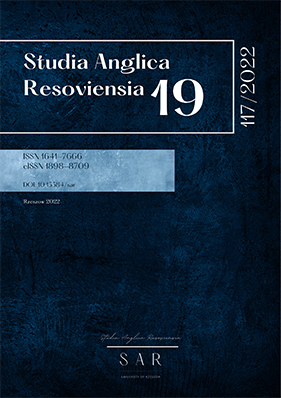Conceptualizastion of shtetl in American English: A Cultural Linguistic Study
DOI:
https://doi.org/10.15584/sar.2022.19.2Keywords:
shtetl, schemes, cognitive linguistics, cultural linguisticsAbstract
This paper examines the conceptualizations of shtetl, ‘a small Jewish town or village formerly found in Eastern Europe’, in American English from the perspective of cultural linguistics. It can be observed that the concept of shtetl reflects cultural metaphors, where shtetl is viewed as a mythic Jewish idyll and, contemporarily, a metaphor for Jewish communality, for example, referring to an apartment building in an urban Jewish American neighborhood of the East Coast cities. It may be suggested that shtetl is also used to describe and categorize things such as tradition, a place of Jewish Diaspora and Yiddishkeit for, mainly, American Jewry. Therefore, this research paper presents cultural categorizations of a place that often emerges at the cultural level of cognition. Overall, the observations made in this paper reveal the potential of cultural schema theory for the studies of cultural linguistics. To recognize this role, the fundamentals of cultural linguistics and its schemes have been used to highlight the need for further research. Several cross-sectional studies have accentuated the cultural concept of a shtetl, e.g. Palmer (1996), Sharifian (2011, 2017). This study has tried to identify the key elements of a shtetl. I have applied Sharifian’s (2017) cultural conceptualization models as well as his distributed model of cultural schemas that can contribute to the knowledge of understating the concept of shtetl in Yiddish and American English, and among Holocaust survivors, first generation, second generation, and third generation American Jews.Downloads
Download data is not yet available.
Downloads
Published
2022-12-15
How to Cite
Dziama, A. (2022). Conceptualizastion of shtetl in American English: A Cultural Linguistic Study. Studia Anglica Resoviensia, 19, 18–26. https://doi.org/10.15584/sar.2022.19.2
Issue
Section
Articles
License
Copyright (c) 2022 Studia Anglica Resoviensia

This work is licensed under a Creative Commons Attribution-NonCommercial 4.0 International License.

